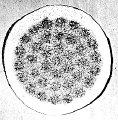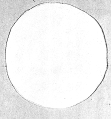|
All testing on PRI products is conducted by independent, third party petroleum testing laboratories. These are the same laboratories used by major oil refiners to conduct quality control testing on today's modern gasoline, diesel and heavy fuel oils. If you or your company is considering an additive testing program, we encourage you to eliminate bias and seek objective, quantitative results by turning to testing professionals in the petroleum industry. Below are the results comparing untreated diesel fuel vs. PRI-D treated diesel fuel using this test method:
PRI vs. Dupont, Nalco, Lubrizol, Starbrite & STA-BIL®
PRI vs. Soltron In recent months some of our clients in Southern California told us of claims made by a representative of "Soltron", a product made with Odorless Mineral Spirits, a form of high-grade kerosene. Soltron claims that the product contains biological enzymes that "eat" impurities in fuel, hence improve fuel stability. We had Soltron evaluated for its claims by Saybolt, a well respected international petroleum testing laboratory. The industry standard ASTM-D2274 testing provided the following results.
Soltron recently contacted PRI and questioned the ASTM D2274 test protocol, explaining that their product must be tested by Soltron's own "special protocol" so as to give their product "time to work". Fact is, the ASTM-D 2274 is a standard test protocol universally accepted by refiners and petroleum chemists. PRI-D vz. MPW 1000 (IFLC) Last year PRI-D was recommended to a client experiencing a complete engine shut down due to severely degraded fuel. We had a sample of the fuel sent to Caleb Brett laboratories in Port Everglades, FL for analysis. The result? Some of the worst fuel we have ever seen. Based on the tests results below, the client treated all 60,000 gallons of the fuel with PRI-D and has run his power generation units without difficulty ever since. This sample of degraded fuel also provided an opportunity to have the MPW1000 stabilizer tested. This is a product manufactured in New Mexico and private labeled under the MPW name and sold in certain areas of central Florida. Once again, independent laboratory tests confirm the overwhelming superiority of PRI technology.
Dupont/Octel Stability Testing Another useful, industry accepted method is the Dupont/Octel stability test. In this test, the fuel is heated to 90 degrees for 90 minutes, and passed through a filter. The color of the filter is compared against a standard reference blotter where filter color is indexed by numbers from 1-to-20, 20 being the darkest. A result of 7 or lower is considered to have "passed" the test.
The first example is of fuel taken from the tank of a standby generator operated by a telephone company in the U.S. Southwest. The fuel was severely degraded and considered unusable. The application of PRI-D to the fuel returned it to an acceptable standard.
The second example is a comparison of fuel treated with a Nalco/Exxon premium diesel package versus that treated with PRI-D. The results are as follows:
The third example is of a fuel discovered in storage on a mining site near Green River, Wyoming. Records confirmed the fuel was in storage 32-years. This fuel was treated with PRI-D, and successfully used instead of being discarded as waste fuel.
PRI: #1 In Gasoline Stability! The industry-accepted test method to determine the oxidation stability of gasoline in its finished form is the ASTM D-525-98 (Induction Period Method). In this test, gasoline is placed in an oxygen charged steel pressure chamber known as a "bomb". The "bomb" is heated, and pressure within is measured over time. When the gasoline begins to absorb oxygen (becoming oxidized and unstable), the pressure drops. Hence, the longer the pressure is maintained, the more stable the gasoline. Time measurement is in minutes. In this test, we chose Chevron gasoline already treated with Techroline® - one of the most stable fuels on the market. Our objective was to show the degree to which PRI-G can improve an already excellent gasoline - hence providing maximum performance with the least amount of carbon deposition. Chevron 87 Octane
Not only does PRI-G enhanced fuel stability, it also restores aged fuel to usability! In the next test, we took 15-year old gasoline to show how PRI-G can actually restore the stability of old gasoline within acceptable levels. The 930 minute range will provide decent ignition quality with minimal deposits. Many fresh gasolines fall within this range.
Whatever fuel you are using, be it diesel, gasoline, or reformulated versions of either, it will become unstable and age. This means that you need PRI’s stability enhancing chemistry. Use PRI-D in your diesel fuel and PRI-G in your gasoline to halt this harmful aging process. You will improve your fuel and get the most out of your engine! WHATEVER FUEL TYPE YOU ARE USING, PRI's ADVANCED TECHNOLOGY WILL IMPROVE IT!
|

 Fuel
stability tests prove the benefits of PRI’s unique stabilization chemistry.
In the ASTM D2274 accelerated stability test, fuel is heated for 16 hours
and then run through a filter. If agglomerations of carbon and other matter
form, then they are captured in the filter and weighed. An unstable fuel
will produce a large amount of matter in the filter, whereas, a stable fuel,
which combusts more completely, will produce much less matter.
Fuel
stability tests prove the benefits of PRI’s unique stabilization chemistry.
In the ASTM D2274 accelerated stability test, fuel is heated for 16 hours
and then run through a filter. If agglomerations of carbon and other matter
form, then they are captured in the filter and weighed. An unstable fuel
will produce a large amount of matter in the filter, whereas, a stable fuel,
which combusts more completely, will produce much less matter. 

